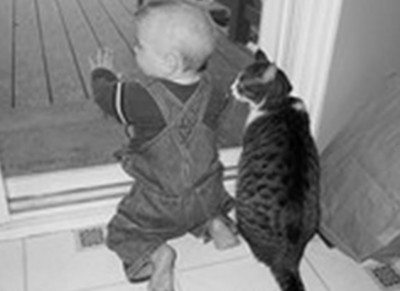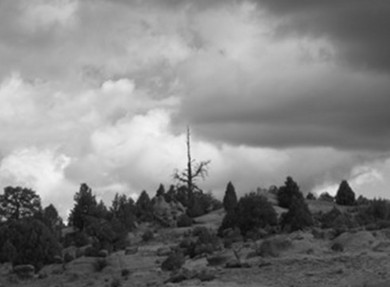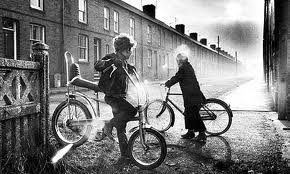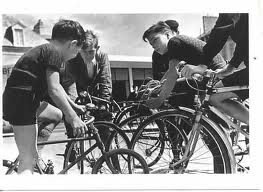February 2013
This Month's Contents: Upcoming book excerpt: Beyond Relativity: Transcending the Split Between Knower and Known by Art Ticknor | "Clear" by Shawn Nevins | Everyday Zen by Gordon Gross | Video: To Be by John Weldon | Quotes | Humor | Reader Commentary
Editor's Note
by David Weimer
Welcome.
Upcoming book excerpt.
Beyond Relativity: Transcending the Split Between Knower and Known
by Art Ticknor
Editor's Note:
RE: Reader cover design contest.
Among TAT's current projects is a forthcoming book by Art Ticknor. We thought it would be fun to offer a contest for a reader-designed cover for Art's book.
[Chapter 1 excerpt]
1. Dissatisfaction
There's no set practice, route, or number of steps that you can follow to find your self – the self. Each individuality or personality is built up based on possible predispositions and life experience, and finding the self is a subtractive or reversal process.
Fortunately we don't have to undo all the learning, all the conditioning, and all our genetic dispositions in order to return to knowing our true state of being. But there is an unfolding, a process of disillusionment, that occurs as we see through our faulty beliefs about what we are. And like the dairyman notes of his cows, there are many paths back to the barn.
I've looked back at my particular path of unfolding by going through 26 years of journals kept between 1978 and 2004, and I've extracted some details for the beginning section of each of the following chapters. The message I hope that comes through: If this fellow can make the trip, anybody can do it.
What you're looking for is closer than you can imagine … closer than your breath, closer than thought or feeling. But if you think you know how close you are, or that you can gauge your progress, you may be fooling yourself. A better way to say that is that an outer part of you may be fooling a more interior part.
The critical factor that led to my success was perseverance. Persevering is difficult during periods where you're not inspired, and even more difficult during periods where you lose hope. But there is always a way … and it's often elusive in its simplicity. For example, my friend and mentor Richard Rose once advised: If you can't inspire yourself, find someone else to inspire.
WHAT CAUSES ACTION is irritation. We move toward acquiring what we desire and away from what we fear. The search for self is prompted largely by the dissatisfaction that goes with believing we are something that was born and is going to die—a thing apart, incomplete, vulnerable, and uncertain. There's a feeling that something's missing, that there's a hole in the center of our being. Coexistent with that deep want is the desire to fill it. But try as we might, we find that nothing is completely and permanently sufficient.
We may go to extraordinary lengths to convince ourselves that the longing is no big deal, or that there's no way to really satisfy it, but we have to try to keep ourselves as distracted as possible to avoid feeling the deep longing, or as medicated as possible to numb the feeling.
Like all pain, the pain of dissatisfaction and unfulfilled longing is trying to tell us something … that there's a problem that needs attention. Trying to mask the symptom doesn't really help in the long run. Pain is a motivator, and the pain of existential dissatisfaction is trying to motivate us to look for wholeness, for completion.
MY MOTHER TOLD me, when I was a grown man with a family of my own, that I had uttered my first complete sentence standing at the screen door in our kitchen, looking toward the back yard: "I want out!" I carry a picture of that scene in my memory now,  but I have no idea if it's an actual childhood memory or one that was conjured up as an adult. In any case, and in retrospect, that demand became my silent mantra as an adult. Maybe even before that.
but I have no idea if it's an actual childhood memory or one that was conjured up as an adult. In any case, and in retrospect, that demand became my silent mantra as an adult. Maybe even before that.
I did a fair amount of skiing when I was growing up near the Vermont border in upstate New York. There were occasional times when I would get a sense of great freedom while skiing down a hill. An even greater sense of freedom occurred in infrequent flying dreams. The night I met Richard Rose, at age 33, I experienced "walking on air." To me, freedom was associated with not being attached to the earth. It was a particular feeling. And the problem was that it was 1) infrequent, and 2) transient.
I HAD A SHELTERED, physically comfortable childhood and parents who provided a stable and secure environment. But I had an increasingly miserable time from school age on, feeling anxious and uncomfortable in my own skin.
Despite gliding through high school with good grades, I flunked out of my first year in college, not having a clue about how to study effectively. Toward the end of that summer my girlfriend announced that she was pregnant – and I was delighted! I felt like I'd found a direction for my life for the first time.
Several months after our son was born, I experienced what I considered the first spiritual elevation of my life. Without any warning, one day while looking at my son the words formed in my mind: "Here's someone I'd like to see ahead of myself at the trough of life's goodies." In other words, I'd fallen in love with someone other than myself. And the revelation simultaneously showed me the "before" condition: "I've been the most selfish person on the planet." I was 19 years old then and felt like I'd been blessed far beyond anything I deserved.
A FEW YEARS LATER, when I was nearing the completion of an undergraduate degree in math, I got hit with a mental bucket of cold water: I admitted to myself that I had no great talent for math and that to continue on with my sleepy plan to go to grad school and stay in academia wouldn't be honest to future students or myself. "I'll have to get a job and go to work eight hours a day five days a week for the rest of my life" struck me as a horrendously boring prospect.
But I took my responsibility to my wife and son seriously and turned my head away from the disappointment. At that time large corporations were starting to install computers to manage their finances, and I stumbled into the nascent field of computer programming for data processing. After a few years of working for my first employer I was distressed at not yet running the company or at least being one of the top executives – my belief in unlimited capability not yet having hit the wall of objective evaluation – and I signed on with a smaller company that was more dynamic in its use of technology.
Before I was 30 years old I was in charge of data processing for the second employer, managing a department of more than 30 people and a multimillion-dollar budget. I had a nice home, a wife and family of three children all of whom I loved dearly – but there was some missing purpose or meaning in my life.
I suffered through periodic bouts of intense dissatisfaction and frustrating attempts to identify what would ease the anguish, but for everything I contemplated I could mentally fast-forward to its attainment and realize, "No, that won't do it." I thought of those agonizing periods at the time as identify crises, although I had no idea why that label occurred to me. But in retrospect, it's exactly what was happening.
In order to ease the pain, I began self-medicating with alcohol, trying to keep a mild buzz on after work and on week-ends – a symptom of covert depression, I suppose. I could see no exit from my prison.
I still have the piece of paper where I wrote, on April 1, 1977, “What I want out of life”:
1. Self-realization (Watt, Leary, …)
2. Self-employed
3. Very informal life style (clothes, house, …)
4. Compatible friends
5. Provide great atmosphere for kids, other people to develop
6. Integrated neighborhood
7. Private room
8. Experience commune living
9. Travel
I also have the following notes I wrote for myself on 6/14/77 on the topic: “What have I learned from the first 32 years of my life, and where am I going from here?” including:
Things I've learned about myself:
1. I'm basically a loner – not by choice, but by nature; I would like to have friends very much, but a combination of shyness and over-criticality of others keeps friendship from developing.
2. There's a big gap between my self-image and the person I think I should be; this is what causes my shyness with others – not wanting them to see the real me (fear of exposure).
3. The only things I'm really interested in are:
a) Building a beautiful personal environment (architecture, landscape design, interior design).
b) Learning more about my self and actualizing my potentials.
4. I have a deep desire to experiment with human relations; whenever I read something like Rimmer's novels about premarital living groups or books about communal living, I want to experiment with the ideas immediately.
5. I have a romantic, unreal streak. When I think how out-of-touch I was as a child, I'm constantly surprised at how practical and realistic our kids are – very little fantasy compared to what I think my early years were like.
6. I have positive vibes toward ecstatic experiences (e.g., Leary and LSD, Yogananda and religious ecstasy) but have very little respect for institutionalized approaches.
7. I get great pleasure from holding our children when they are small (before they're say 8 to 10) and would always like to have a small child in the house..
Things I've learned about other people:
1. Other people are a mystery to me.
2. I want other people to like me.
3. I try to treat other people with respect and not make demands on them.
Things I've learned about life in general:
1. From a practical standpoint, I believe that my individual life is of finite duration and has no inherent purpose (other than being part of the scheme of species survival).
2. I like the idea that the individual may be an eye on the universe – that in reality there is no separate self, that we're just manifestations of the universal and infinite whole.
Where am I going from here?
1. Since I'm “going” somewhere effortlessly, why not just relax and enjoy it? (Flow with the Tao.)
2. In my own low-investment way:
a) Pursue Eastern philosophies and the art of medita-tion/consciousness expansion.
b) Find work that is satisfying.
ONE RAINY SUNDAY AFTERNOON in the spring of 1977 my wife and I had taken the kids to a local library, and she spotted a poster she thought I'd be interested in. It was about meetings of a Zen group at Ohio State University. I'd been reading Alan Watts, who popularized Zen in the US, and although I didn't understand what Zen was really about, something in me was fascinated by it. So I decided to check out the group at OSU.
I had done some graduate work in computer science there but was not in school at the time so wasn't in tune with the academic calendar, which ran on quarters. When I went to a meeting, it was during a quarter break and the meetings weren't in session. I think I forgot about it for a while then went again … with the same results. I called the university and talked with the faculty adviser, who said he didn't really know much more about the meetings than I did. I don't recall the details of my procrastination and forgetting, but some-thing in me wouldn't let up. It was nearly a year after seeing the poster when I finally attended a meeting of the Pyramid Zen group.
Based on my impression from reading Watts, I was expecting something like people in black robes sitting silently and staring at burning candles. What I found was a group of a dozen or so people sitting in a circle of chairs, talking … talking … talking. My reaction: "These people don't have a clue what Zen's all about." But after getting over my initial snit, I realized that they were talking about things I'd never heard anyone talk about (and hadn't come across in my decades of obsessive reading) and that I was deeply interested in.
THAT WAS IN 1978, when I was 33 years old. The Zen self-inquiry group had formed a few years earlier after students had heard a talk by Richard Rose. I became a regular participant, even spending several nights a week talking with some of the folks who were seriously pursuing a path to Truth or Reality and had rented a house in the campus area that they treated as an ashram, albeit one without a resident guru.
Living on Borrowed Time
 There's the small problem of life and the big problem of life.
There's the small problem of life and the big problem of life.
No one knows if they'll live to see another day. Is there a penalty for dying ignorant of what you really are? That's the big problem of life.
Then there's the relatively small problem of the quality of today's life. You're on the roller coaster ride of experience … not knowing why you're experiencing or what experience really is, experiencing less perceived control over experience the longer you live, afraid to look behind you (sensing the hound of heaven's incessant footsteps behind you), moving, always moving physically or mentally (afraid of staying still, of silence), procrastinating, always procrastinating.
There's no solid ground under your feet. Your feet are a projected belief … that can walk on 1,800-degree coals and not be burned. Is your entire life a hypnotic projection? What do you have that won't be taken away? At gut level, what do you want out of life? Why are you here?
Are you what you experience? Does experience define you? Are you relying on experience for your salvation or rescue? What if all experience is the flickering of shadows on the cave wall of mind? What if the dream of life ends before you awake? Where will that leave experience-defined you?
*
To & Fro
To and fro
Heel and toe
The older I get
The slower I go.
*
Visit and explore Art's website.

|
"Clear"
A lone, white stem
Chattering at me,
Its song is blue reflected upon the waters,
Blue is white is winter is light
|
Everyday Zen
by Gordon Gross
Parenting as Meditation
In the zen tradition there is a phrase that describes an advanced meditation practice. It is called, “everyday zen”. This refers simply to becoming more mindful and aware during daily routine behaviors and moving meditation from the cushion and formal sitting to washing dishes, preparing food, eating, mowing the lawn, etc. Being a parent to children is one such opportunity for deeper practice.
 My two sons have always shared conflict. They are two years apart in age and the older incessantly picks on the smaller. As I began over the years to reflect on their differences and the reasons for their conflict I devised a mindfulness stratagem for them that helped them unravel (sometimes) the knots of anger they created. When they would get into an argument I would ask them to sit down and without speaking take ten deep slow breaths. After that I would offer them an opportunity to explain their viewpoint. After they had offered it I would ask the other, ”Did you hear that? What did he say?” They would then repeat what the other had offered.
My two sons have always shared conflict. They are two years apart in age and the older incessantly picks on the smaller. As I began over the years to reflect on their differences and the reasons for their conflict I devised a mindfulness stratagem for them that helped them unravel (sometimes) the knots of anger they created. When they would get into an argument I would ask them to sit down and without speaking take ten deep slow breaths. After that I would offer them an opportunity to explain their viewpoint. After they had offered it I would ask the other, ”Did you hear that? What did he say?” They would then repeat what the other had offered.
Invariably the rationalizations began immediately after and to help them I asked them to look at the situation from four other viewpoints. As they analyzed the situation while looking for other viewpoints their anger would soften and they would eventually be civil to each other once again. Sometimes, however, there were situations that were not so easily dealt with.
I discovered through many years of dealing with them that just letting things rest for a while and then meditating on extremely difficult problems always seemed to help. The intuitive mind has answers that the ego can’t see and allowing ego mind to relax while sitting or doing walking meditation allows space for the intuitive answers to arise from the wellspring we are all connected to.
One Friday afternoon I picked the boys up from school. We lived in a townhouse then. When we arrived home there was a group of six boys ages 6-10 riding their bicycles out in the parking lot. Alex who was eight years old was excited by the prospect of making new friends.
”Dad can I get out my bike and go ride with those boys?” I said it would be ok and he was soon out front. His younger brother Adam who was six was still a little shaky on his bike and said he was just going to run around with them. They went out and fifteen minutes late Alex came back in and was crying and his knee was cut and bleeding. I asked what happened and he said the older boys had knocked him down on his bike and called him a “Honky mother****er. He asked me what that meant.
I went to the window and looked out. The boys were circling around yelling profanities and I felt some anger arise in me. I stepped back from the window and said, ”Lets take care of that knee Alex.” We did and I told them they couldn’t go outside. I was uncertain what to do but I knew that if I went out immediately and expressed anger it would just push those boys further onto the sad ground upon which they already stood. They had learned their behavior and language from their parents and I knew that wasn’t going to disappear anytime soon. So, I let it go. That night after story time with the boys I went into a deep meditation for several hours and cleared my mind allowing whatever coincidence or intuition that was waiting to have space to enter into. I went to bed and slept well.
In the morning the boys wanted to go to the dollar store. They liked going there because every Saturday I would give them each a couple of dollars for allowance and they would buy some cheap toys to amuse themselves with. While we were there I saw a replica police badge and smiled as intuition reared its lovely head once again. I paid for the badge and the boys prizes du jour and we went home. The gang of six was outside riding bikes once again. We went inside with our groceries and toys and a little while later I came out and walked over to where they were riding.
They became silent and looked apprehensive as they knew I was Alexs dad and they were probably in some kind of trouble. Boy were they ever. I held up the police badge and said,”Gentleman I am Mr G. I am the neighborhood bike police safety patrolman. Have these bikes had their annual safety inspection?” The boys were astonished. They looked at each other then back at me. “Let me see that one,” I said pointing to the largest boy's bike. He handed it to me and I flipped it over and propped it up. “Just as I thought,” I said,” the chain is loose, the brakes aren’t working and the seat is too low. I want all of you guys to wait here while I get my bike tools.“ A few minutes later I returned with tools and a tire pump. I worked on their bikes for the better part of an hour. When I was finished I motioned to Alex and Adam to come out. The boys were all happy that their gears and brakes worked, tires were inflated and they had their seats adjusted properly. I pointed to my front door and said, “That is where I live. If you ever have any problems with your bikes in the future just come and knock and ill fix it for you.”

The boys looked utterly astonished. It seemed obvious to me that they didn’t get a lot of attention from adults where they lived. I turned and introduced my boys. “These are my two sons, Adam and Alex, would it be ok if they rode bikes with you?” The boys all came forward, smiled and shook hands and soon they were all happily riding bikes over the lawn and lot.
My first impulse in this situation was anger when I saw that they had hurt Alex but angry impulses seldom lead to positive outcomes. By trusting the intuitive meditation process and knowing that an answer would present itself in its own good time, I created a positive outcome for a situation that could’ve been a long term problem for my boys.
Trusting the intuitive mind is a process that takes time to come to terms with but I have found it an invaluable ally in parenting and indeed in just everyday living. When we approach life and our problems with a meditative and mindful viewpoint and learn to trust the intuition that arises with the practice we do come to, “everyday zen.”
To Be
by John Weldon
If you don't see the video above, visit YouTube.

|
Quotes....“When I ask people whether they experience being as a smoothly continuous state or a flickering one they all say it's smooth and continuous for them. For me it's always been a flickering. Not visually — I've never actually seen the black between the pictures in my eyes but I've sensed it in my brain and for that reason I don't make any assumptions about reality. "Can it be that the world flickers? Can it be that the chair I sit on is only rhythmically and repetitively but not continuously there? Why don't I fall to the floor between therenesses? How do I manage to flicker synchronously with the chair? Why don't I fall to the floor between therenesses? How do I manage to flicker synchronously with the chair?”
~from Fremder, by Russell Hoban
|
Humor....
CONFESSIONAL BOX
A guy goes into the confessional box after years being away from the Church.
He pulls aside the curtain, enters and sits himself down.
There's a fully equipped bar with crystal glasses, the best vestry wine,
Guinness on tap and cigars and liqueur chocolates nearby.
He hears a priest come in:
"Father, forgive me for it's been a very long time since I've been to confession,
and I must admit that the confessional box has taken me aback."
The priest replies,
"Get out, you idiot. You're on my side!!"
Reader Commentary
Hello TaT organizers ... Did you ever check my new Teacher Francis Lucille? Much love and thanks for your wonderful Job !
~Catherine Pepin
Did you enjoy the Forum? Then buy the book!
Beyond Mind, Beyond Death
is available at Amazon.com.



